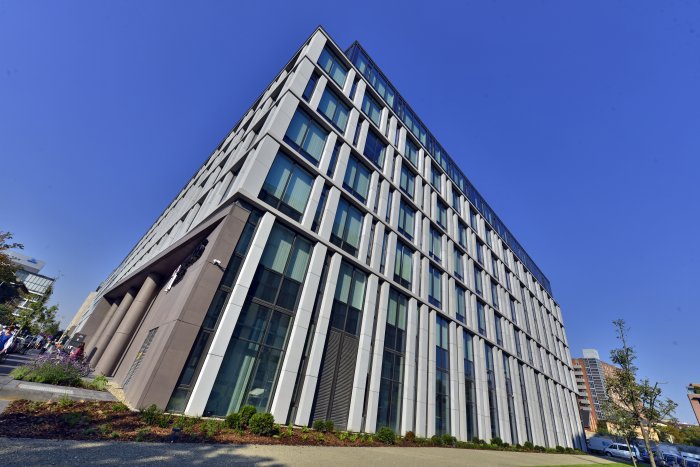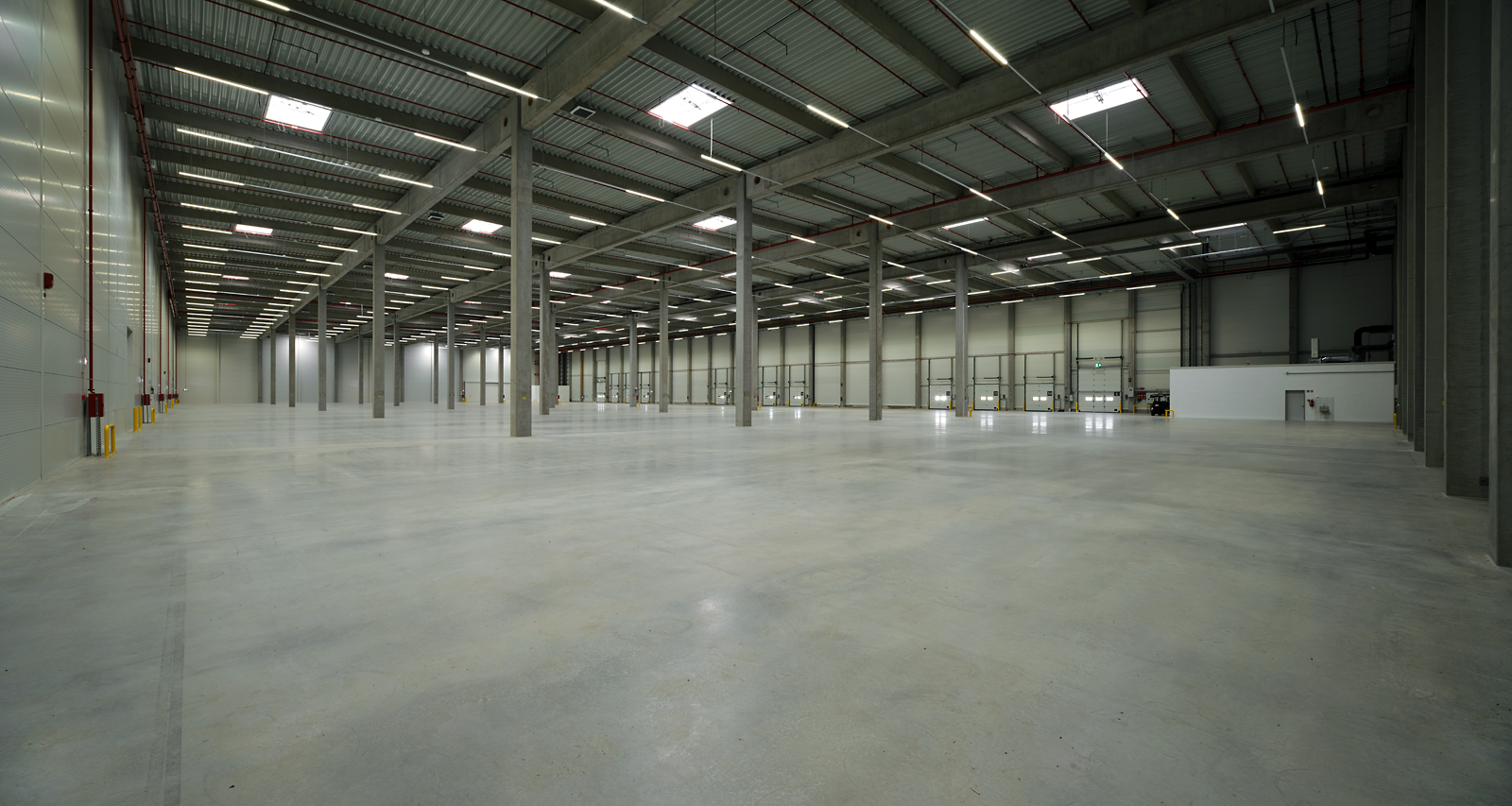Office Becomes the Sector of Choice for Investors

The office market is regarded as the investment destination of choice with strong fundamentals such as high demand, low vacancy, a strong quality pipeline and possibilities for value-add acquisitions.
Mill Park by Skanska.
Developers in Budapest are able to go forward with projects with the expectation that assets can be sold onto investors on completion or, indeed, held onto for longer, but with the confidence there is still an exit strategy if and when required.
Despite that, however, office investment volume is restricted by relatively low liquidity due to a limited supply of investment grade product. Local investors have been developing long-term relationships with developers and are able to react quickly when an asset does potentially become available, although more international investors are expected to enter the Hungarian market.
“I would expect that around EUR 1.5 billion will transact this year and this is what we should expect going forward. Typically , the office sector constitutes around 50% of this volume; prime shopping center schemes have transacted in recent years and we do not expect imminent retrades,” comments Mike Edwards, head of capital markets at Cushman & Wakefield.
Benjamin Perez-Ellischewitz, head of capital markets at JLL Hungary, puts the sector breakdown at 40% for office; 30% for retail; 10% for logistics and 20% for the remainder (hotel, residential and buildings for redevelopment).
Office-driven
A total of EUR 1.7 bln in commercial real estate transactions was concluded in 2018, according to CBRE. Of this, EUR 818 million was recorded in the office market.
“The first quarter 2019 investment volume remained predominantly driven by the office sector with 64% of the total turnover, followed by retail with 17% and industrial with 12%, while hotel assets attracted 7% of the volume,” comments Gábor Borbély, head of research and business development at CBRE.
“Retail investment volume remains subject to the very few potential upcoming sales so we believe office will dominate the investment market in the coming quarters,” Borbély adds.
Perez-Ellischewitz says of investment prospects for the year: “There is limited visibility on volumes as there a very few large open tenders in the pipeline. A few off-market deals of magnitude might move the volumes significantly. I would say around EUR 1.5 bln.”
CBRE says 65% of investment by local funds in 2018 came from the big institutional funds: OTP Real Estate Fund; Erste Real Estate Fund; and Diófa Real Estate Fund. Beyond these, other local funds, have become active on the market.
Domestic Role
The purchase of the 88,000 sqm Corvin Offices portfolio by OTP Real Estate Fund from Futureal was arguably the largest office transaction in Hungary to date. The deal, concluded between a Hungary-based developer and a local investment fund, reflects the increasing role of domestic capital at the top end of the Budapest office investment market.
With their established positions in the markets and confidence in the fundamentals of the office market, Hungarian funds are in a position to make purchases at earlier stages in the development process. Erste Asset Management, for example, completed the purchase of the 25,000 sqm Promenade Gardens from Horizon Development in a rare forward purchase deal in Hungary.
A major office deal last year was the purchase of the 36,000 sqm Mill Park by Erste Asset Management from Skanska. This is the second acquisition deal between Skanska and the Hungarian fund following the Nordic Light transaction in 2016.
“Erste Open-Ended RE Funds aim for a stable and attractive return from long-term lease of properties in its real estate portfolio. The fund mainly invests in premium assets, including offices and commercial properties, which mostly have long-term rental contracts with stable, multinational partners from the start of the investment,” comments Róbert Varga, real estate asset manager at Erste Asset Management.
“Besides real estate, the fund invests in low-risk money market assets. We see the local market attracting international investors, but our local knowledge, market experience and multinational background ensures that the funds will continue to play a leading role in the Hungarian market,” Varga explains.
Yield Premium
CBRE puts prime yield for offices stands at 5.75%, while high-quality secondary assets in the sector can achieve around 6.75%. Hungary provides a 100-125 basis point premium on Czech Republic and Poland in both the office and retail markets.
“Czech Republic is experiencing the most aggressive pricing in the CEE region. Prime buildings in Prague are now trading close to 4% so even if [Budapest development] Roosevelt 7/8 gets close to 5%, we will still carry a spread of 100 basis points or more,” says Perez-Ellischewitz.
Against the background of limited supply of investment grade office assets and increasing demand from both international and local investors, more deals are being concluded for earlier generation office complexes with value-add potential, such as Central Udvar in central Pest and Infopark Buildings “A” and “D”.
Goldman Sachs, for example, has purchased the 30,500 sqm Science Park in South Buda, a complex that was originally delivered in 2003 and renovated and redeveloped by DVM group in 2018.
The overall number of transactions in the office market is expected to rise this year; however, this will mainly be for smaller lot sizes with a value of around EUR 50 mln. The market is currently lacking in the provision of big ticket items that would attract the very largest major institutional investors.
SUPPORT THE BUDAPEST BUSINESS JOURNAL
Producing journalism that is worthy of the name is a costly business. For 27 years, the publishers, editors and reporters of the Budapest Business Journal have striven to bring you business news that works, information that you can trust, that is factual, accurate and presented without fear or favor.
Newspaper organizations across the globe have struggled to find a business model that allows them to continue to excel, without compromising their ability to perform. Most recently, some have experimented with the idea of involving their most important stakeholders, their readers.
We would like to offer that same opportunity to our readers. We would like to invite you to help us deliver the quality business journalism you require. Hit our Support the BBJ button and you can choose the how much and how often you send us your contributions.









